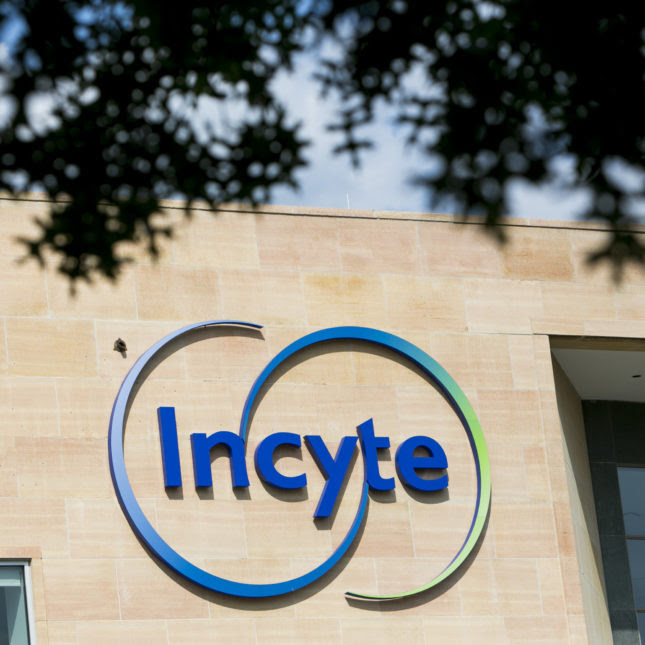
The first real clinical test of the cancer immunotherapy combination thesis has come back negative.
Incyte said Friday that its experimental drug epacadostat failed to improve the efficacy of Merck’s checkpoint inhibitor Keytruda when the two drugs were used together to treat patients with newly diagnosed melanoma.
The negative outcome of the Incyte Phase 3 clinical trial, known as ECHO-301, has far-ranging ramifications. It’s a big setback for Incyte and for melanoma patients. But the trial results could also ripple across the fledgling cancer immunotherapy field and the biotech stock sector.
The ECHO-301 study was set up to test the theory that epacadostat — a drug that blocks an enzyme called IDO — could make existing cancer immunotherapies like checkpoint inhibitors more effective.
But the experiment did not work. The combination of epacadostat and Keytruda did not delay the growth of cancer or prolong survival compared to Keytruda and a placebo in melanoma patients, Incyte and Merck said.
As a result, the ECHO-301 study is being stopped.
Currently, the cancer immunotherapy field is dominated by checkpoint inhibitors like Merck’s Keytruda and Bristol-Myers Squibb’s Opdivo. These drugs work by essentially lifting the brake off the immune system so that T cells can seek out and kill cancer cells.
Checkpoint inhibitors generate billions of dollars in sales as go-to treatments for a wide variety of cancers, but they are not perfect. They only work for minority of cancer patients.
And that has set off a great R&D quest, funded with billions of dollars, to find new types of drugs with the potential to work in combination with checkpoint inhibitors so that tumors shrink more and a greater percentage of cancer patients benefit.
Epacadostat was supposed to be one of those drugs. IDO is an enzyme that helps to put T cells to sleep. When T cells are inactive, they have a harder time finding or killing cancer cells. Incyte’s epacadostat is an IDO inhibitor. It blocks IDO, therefore activating T cells.
The ECHO-301 study was the first Phase 3 clinical trial set up to confirm the cancer-killing activity of an IDO inhibitor when used alongside a checkpoint inhibitor.
Instead, the study determined that epacadostat’s effect on progression-free survival — the primary endpoint — was essentially nil. On a conference call Friday morning, Incyte said there was no statistical difference at all between the epacadostat-Keytruda combination and Keytruda-placebo.
Patients are still being followed for survival but independent study monitors concluded that epacadostat was unlikely to make a difference, hence the decision to stop the study.
The failure of epacadostat in this melanoma study will raise serious doubts about the future for IDO inhibitors, even as Incyte continues to pursue clinical trials in other types of cancer, most notably lung cancer.
Shares of NewLink Genetics, which is also developing IDO inhibitors, dropped 40 percent to $4.40 Friday on reaction to the failed epacadostat study.
The magnitude of Incyte’s stock drop Friday may seem small, but consider that Incyte was trading near $150 per share one year ago. Investors’ confidence in IDO was already brittle. That skepticism was confirmed Friday.
